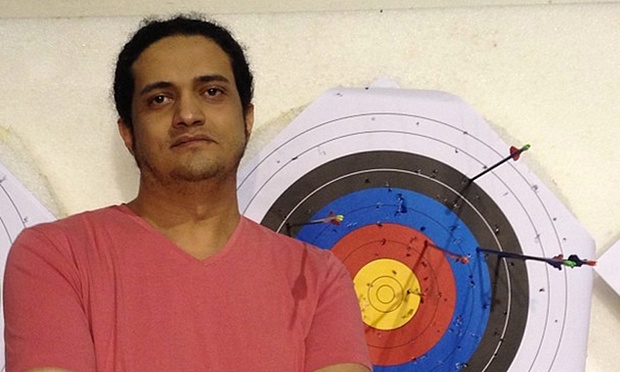
On November 17th, 2015, a Saudi Arabian court sentenced Ashraf Fayadh to death on accounts of apostasy (abandoning the Muslim faith). Before his sentence, Fayadh had spent the last two years being detained and released from prison on several accounts. First he was arrested in August 2013, with the accusation that his poetry promotes Atheism. He was released on bail, but arrested again in January 2014, for his book Instruction Within. While Fayadh persists that the book is “just about me being [a] Palestinian refugee… about cultural and philosophical issues,” (www.theguardian.com), he was sentenced to 800 floggings and four years in prison. Before his sentence of four years was over, several police officers accused Fayadh of renouncing his religion in public, in addition to having sexual relations with two women whose photos he keeps on his phone. Fayadh persists that these accusations are made up, and that the photos of women on his phone were artists at Jeddah art week. So why do Saudi Arabian authorities so desperately want Fayadh detained and/or dead? First off, the judges of Saudi Arabia are clerics from the extremely conservative Wahhabi school of Sunni Islam. They follow Sharia Islamic law, but more particularly follow their *individual interpretations* of Sharia Islamic law. They often interpret it in different ways, most likely to suit their own opinions and biases. The judge in Fayadh’s case immediately accused him of apostasy without ever even speaking with him. This fact is reason enough to believe that Fayadh is being executed for reasons other than the most recent accusations made against him: The Islamic monarchy itself is threatened by artists. There is an explicit reason why the Saudi Arabian government might feel threatened by Fayadh: Besides his long hair and smoking habit, he and other artists are actively pushing the boundaries of freedom of speech through their artwork. In fact, there are NO art schools in Saudi Arabia whatsoever, meaning that all artists in the region must be extremely creative, individualist, and motivated. These three adjectives pose a threat to the monarchy based on Islam, especially when they belong to someone who does promote the mandated religious and/or political views. Fayadh specifically poses a threat because he is an important member of the of the British-Saudi art organization, Edge of Arabia. According to Fayadh, as a result of this organization, “The radical transformation in Saudi art… is now more affiliated with its roots, to the real culture represented by the awareness of the different living conditions in Saudi Arabia.” Therefore, Fayadh’s support in the spread of knowledge to citizens of all social status might also pose a threat to the monarchy. Fayadh has curated numerous art shows, and written several books of poetry. Here is one of his poems translated to English: “Asylum” from Fayadh’s Instructions Within Asylum: To stand at the end of a queue.. To be given a morsel of bread. To stand!: Something your grandfather used to do.. Without knowing the reason why. The Morsel?: You. The homeland: A card to put in your wallet. Money: Papers that carry images of Leaders. The Photo: Your substitution pending your return. And the Return: A mythological creature … from your grandmother’s tales. End of the first lesson. I don’t know about you, but this poem did not seem to promote an Atheist lifestyle… For this and many other reasons, there are several attempts to free Fayadh of his death sentence, such as an online petition and a facebook page, but it is doubtful that social media will be a strong enough means of sparing his life. To put it shortly, the Saudi Arabian government has a complete intolerance for anyone who thinks outside the box—or in other words, artists. Fayadh’s case is only one example of how producing artwork in Saudi Arabia is a risk to one’s life. I end this article feeling incredibly disheartened, but also grateful for the freedom I have to write novels, poetry, and this article. Perhaps the next time we embark in creative writing, we can do so in honor of Fayadh, and in honor every other artist who has been imprisoned or killed for their creativity. Whatever heaven Fayadh ends up in, lets hope that he is able to produce as much poetry as his heart desires.



